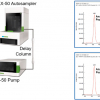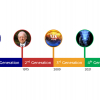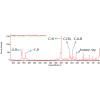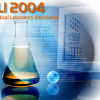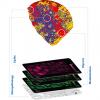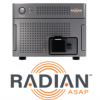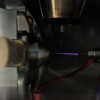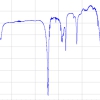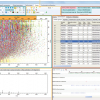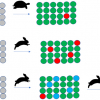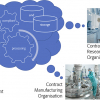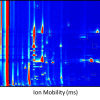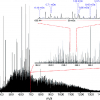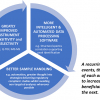Articles
LC/MS/MS analysis of PFAS at ultra-trace levels requires mitigation to both liquid chromatograph and mass spectrometer to eliminate the leaching of fluorochemicals from components within the systems. Manual SPE configurations also require mitigative steps to eliminate any components constructed of PTFE to minimise or eliminate any PFAS contamination.
John Hammond finishes his magnum opus on “Four Generations of Quality” with a look at what is science fiction and what is science fact. He considers what may turn out to be “fact” in the future for each of the preceding eight articles in the series.
A Raman spectroscopy method was optimised to examine the chemical changes of aspirin tablets after interaction with helium temperatures.
Tony Davies has started a timeline of significant spectroscopic system developments aligned with Queen Elizabeth’s reign as recently celebrated in her Platinum Jubilee. Jumping from Princess Anne the Princess Royal’s birth to Heinrich Kaiser certainly makes for a novel approach! Tony hopes that we can turn this into an online resource with your help.
This article describes MALDI imaging’s potential uses in pathology applications, and the benefits of the technique to map hundreds of biomolecules (proteins, lipids and glycans, for example) in a label-free, untargeted manner or for imaging target proteins using a modified immunohistochemistry protocol, often from a single tissue section.
This sponsored article describes the RADIAN ASAP, a dedicated direct analysis system, which uses Atmospheric Pressure Solids Analysis Probe (ASAP) technology to analyze solids, liquids and solutions.
The authors have developed the “GlowFlow” mass spectrometry source design based on an Argon flowing glow-discharge that can be retrofitted to existing instrumentation and ionise compounds at atmospheric pressure which are less amenable to ESI.
Following our articles on the FAIR initiative, we now look at some examples of the FAIRification of data handling, collection and archiving.
The Tony Davies Column offers a challenge to us all with another contribution on FAIR data, which should be Findable, Available, Interoperable and Readable. It is clearly the way we should all be going, everybody from manufacturers and software developers, through researchers to publishers needs to work together.
Mark McDowall, Meetings Secretary of The British Mass Spectrometry Societ,y explains how the society coped with the restrictions of COVID and what his views are for the future of events.
How did a major trade show organiser cope with the disruption of COVID-19? Susanne Grödl, Exhibition Director of analytica for Messe München, gives her experience.
Over the last two decades, significant advances in technology and new methodologies have made proteomics an extremely powerful tool for protein scientists, biologists and clinical researchers. Increase in the data produced also creates new challenges for bioinformatics software development.
Whilst automation is not a panacea, it can improve the accuracy of manual tasks as well as freeing up our time for more challenging tasks. The authors explore some particular examples they have come across and lessons learned from them.
Tony Davies and Mohan Cashyap discuss this topic with help from a number of industry experts. Whilst there are undoubted computing and networking issues for regulated industries in allowing working from home as if the user was in the lab, they are not insurmountable.
David is concerned about the “Importance of citing full details of spectral library and search program” in papers. As he points out, “even when the same mass spectrum is searched against two different versions of the NIST/EPA/NIH EI Mass Spectral Library using the same search program, two different compounds can be found as the first Hit”. There are many possible reasons for this, but the version of the spectral library used and the particular search program used make a difference, and should be included in all references.
With a significant proportion of our regular readership probably under home lock-down, we were wondering if we could help you at this difficult time by pointing out some useful online resources. So, when we finally come out of this pandemic, you could do so better skilled and more up-to-date than when we went in to it.
Tony and Lutgarde Buydens give us an update on the planning for the major EuroAnalysis 2021 conference, which is being held in Nijmegen, the Netherlands, at the end of August 2021. At this stage, they are keen to gather suggestions from readers on topics they would like to see covered. Groups are also invited to consider hosting their own event under the EuroAnalysis 2021 banner.
The authors offer many useful points to consider when using pre-processing techniques.
The authors have developed a clever solution to be able to provide constant resolution, high-resolution mass spectrometry data across the full spectrum. In doing so, they have assigned 244,779 unique elemental compositions: a record.
A recent conference on Extractables and Leachables in Hamburg not only allowed two ex-colleagues to meet after many years, but also provided information on developments and trends in the regulatory environment. Not only are ever lower levels of detection required, but also analytical requirements are being placed on companies further back in the materials’ supply chain that have not had to make such considerations before.

